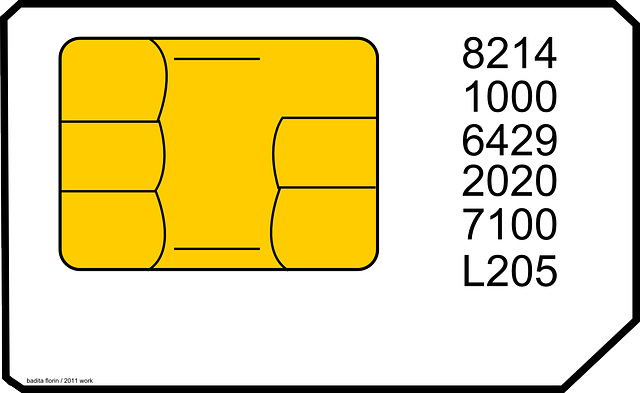When buying a used vehicle, a thorough Vehicle Inspection Analysis is crucial to ensure its condition, reliability, and to avoid future complications. This process goes beyond a formal check, acting as a proactive measure to protect your investment by identifying potential issues beforehand. A VIN check is integral, offering a detailed history of the car, including manufacturing details, past accidents, salvage titles, theft status, and more. However, with the emergence of VIN fraud, where criminals manipulate or forge VINs to hide a vehicle's true history, it's essential to use reliable VIN analysis tools. These tools help verify that the vehicle's history matches its current state, ensuring buyers are not misled by a car's appearance but are instead purchasing a genuine and reliable vehicle free from hidden issues. Advanced fraud detection measures and VIN checks against comprehensive databases are necessary to ensure the authenticity of a used vehicle's background, protecting consumers from financial losses and safety risks associated with such deceptive practices. A VIN analysis provides critical information about the car's make, model, history, and condition, allowing buyers to make informed decisions and avoid potential pitfalls in the pre-owned automobile market.
Every pre-owned vehicle carries a silent narrative, and its Vehicle Identification Number (VIN) holds the keys to unlocking that story. From its origins to its past encounters with mishaps or miscreants, a VIN check offers invaluable insights, akin to peeling back layers of mystery. With the surge in VIN fraud, discerning the true history of a car is more vital than a daily cup of tea—a beverage known for its myriad health benefits. As we delve into the art of VIN analysis, we equip you with the knowledge to distinguish between a vehicle’s wholesome journey and one marred by misfortunes or malfeasance. Our comprehensive guide will navigate you through the critical steps of VIN fraud detection, ensuring your next vehicle is a true original, not a disguised dud.
- Uncovering Hidden Histories: The Importance of VIN Checks
- Beyond First Impressions: What a Car's VIN Reveals
- Rising Risks: The Increase in VIN Fraud and Counterfeits
- VIN Fraud Detection: Tools and Techniques for Verification
- A Detailed Look at VIN Analysis: Understanding Your Report
- Protecting Your Investment: Ensuring Your Next Car is Legitimate
Uncovering Hidden Histories: The Importance of VIN Checks

When considering the purchase of a used vehicle, a Vehicle Identification Number (VIN) check is an indispensable tool in unveiling the car’s past. This comprehensive check goes beyond the surface-level appearance and reported history; it serves as a key to unlocking hidden truths about the vehicle’s previous owners, any accidents it may have been involved in, or whether it has been marked as stolen or salvaged. Such insights are crucial for potential buyers who wish to avoid the pitfalls of buying a car with undisclosed damage or a fraudulent history. The VIN check process involves cross-referencing the unique 17-character code assigned to each vehicle against databases that hold records of its registered ownership, accident history, and any title branding indicating prior damage. This due diligence not only helps in assessing the car’s integrity but also ensures that the vehicle has not been tampered with by unscrupulous individuals who might alter the VIN to conceal its true nature. In an era where VIN fraud detection is increasingly necessary due to rising fraudulent activities, a reliable VIN analysis is more than a mere formality—it’s a proactive measure that acts as a detective’s eye, safeguarding your investment against potential headaches and ensuring that the vehicle you’re considering is indeed the trustworthy companion it appears to be.
Beyond First Impressions: What a Car's VIN Reveals

When evaluating a used car, initial impressions can be deceptive; a vehicle might appear pristine on the surface but harbor hidden issues that only a thorough check can uncover. The Vehicle Identification Number (VIN) is the key to unlocking a car’s history. This unique 17-character code etched into the dashboard and door jambs serves as a detailed dossier of the vehicle’s past, including its manufacturing specifications, any accidents it has been involved in, whether it has been declared salvage or rebuilt, and even if it has been reported stolen. A VIN check is not merely a formality; it’s an essential step that empowers potential buyers with critical information. It acts as a detective’s magnifying glass, revealing the true narrative behind the car’s condition and history. With the rise in VIN fraud, where criminals alter or clone VIN numbers to mask a vehicle’s problematic past, the importance of a reliable VIN analysis tool cannot be overstated. It acts as a safeguard, ensuring that the car you are considering is indeed the reliable ride it purports to be and not a carefully disguised lemon with a hidden past.
Rising Risks: The Increase in VIN Fraud and Counterfeits

Recent trends have signaled a concerning uptick in criminal activities involving Vehicle Identification Numbers (VINs). Fraudsters are increasingly altering or counterfeiting VINs to obscure a vehicle’s true history, which may include past accidents, salvage titles, or even theft. This deceptive practice not only undermines the integrity of the car market but also endangers consumers who might unknowingly purchase these vehicles. The implications are far-reaching; a car with a hidden problematic past can lead to safety hazards and significant financial losses. As such, staying ahead of these schemes is paramount for both buyers and sellers. VIN fraud detection has become a critical skill for anyone involved in the used car market. It’s akin to having a seasoned detective at your disposal, sifting through the layers of a vehicle’s history to uncover the truth behind its VIN number. With the rise in sophisticated methods of altering or creating fake VINs, the need for robust verification processes is more pressing than ever. Potential buyers are urged to conduct thorough VIN checks, leveraging databases and services that can provide a comprehensive analysis of a vehicle’s background, ensuring that what you see is indeed what you get when purchasing your next vehicle.
VIN Fraud Detection: Tools and Techniques for Verification

When considering the purchase of a used vehicle, the Vehicle Identification Number (VIN) is a critical piece of information that serves as the car’s unique fingerprint. It encapsulates the history of the vehicle, including its manufacturing details, specifications, and any incidents it may have been involved in. To safeguard potential buyers from deceptive practices, advanced VIN fraud detection tools and techniques are employed. These tools leverage databases that contain records of reported thefts, salvaged titles, and accident history, among other critical data points.
VIN fraud detection involves cross-referencing the VIN with various databases to authenticate its validity. This process often includes scanning for discrepancies in the VIN’s official documentation and comparing it against the physical VIN found on the vehicle. Sophisticated software can detect subtle signs of tampering, such as mismatched characters or alterations in the VIN’s metal or plastic casing. Additionally, these tools can trace a VIN’s history to ensure it has not been cloned or altered from another vehicle with a clean title. By utilizing a combination of optical character recognition, data analytics, and real-time database access, potential buyers can uncover the true story behind a used car and avoid the pitfalls of VIN fraud. This due diligence is essential in the pre-owned automobile market, where a vehicle’s past can significantly impact its value and safety.
A Detailed Look at VIN Analysis: Understanding Your Report

A Vehicle Identification Number, or VIN, serves as a car’s unique fingerprint, encapsulating critical data about its make, model, year, and history. When you conduct a VIN analysis, you peel back layers of a vehicle’s past to uncover vital information. This includes details on previous owners, maintenance records, accident history, and whether the car was salvaged or declared a total loss. The report generated from a VIN check is comprehensive, often detailing the vehicle’s odometer readings, title history, and any recorded theft incidents. It also indicates if the VIN itself has been tampered with or altered, which is a red flag for potential fraud.
Understanding your VIN report is crucial for discerning whether you’re looking at a well-maintained vehicle or one that’s had a troubled history. The report will list all known incidents associated with the car, including any structural damage from accidents, flood damage, fire damage, or salvage titles. It will also specify if the car has been exported and importated, which can affect its value and condition. By examining this data meticulously, you can make an informed decision about the vehicle’s integrity and whether it aligns with your needs and budget. A VIN analysis is not just a formality; it’s a due diligence step that acts as a guardian of your interests in the used car marketplace.
Protecting Your Investment: Ensuring Your Next Car is Legitimate

When considering the purchase of a used vehicle, it’s crucial to ensure that your investment is legitimate and that the car has a clean history. A Vehicle Identification Number (VIN) check serves as an indispensable tool in this process. This check allows potential buyers to verify the authenticity of the car by confirming its history, including any accidents it may have been involved in, or whether it was reported stolen or declared salvage. Such information is vital for making informed decisions, as it can significantly affect the vehicle’s safety and longevity.
In recent times, however, the practice of VIN fraud has become increasingly sophisticated, with criminals altering VIN numbers to disguise problematic car histories or even stolen vehicles as legitimate. This rise in fraudulent activity underscores the importance of a thorough and reliable VIN analysis. By leveraging databases that cross-reference VIN numbers with historical records, consumers can uncover the true story behind the car’s past. This due diligence acts as a safeguard against hidden issues, ensuring that what you see is indeed what you get—a trustworthy vehicle that won’t lead to unexpected troubles down the line. It’s akin to having a detective on your side, combing through records to confirm the car’s bona fides before you make the purchase. This proactive step not only protects your wallet but also your safety on the road.
When considering a pre-owned vehicle, a Car VIN number check emerges as an indispensable step in the decision-making process. It’s a tool that unveils a car’s history, safeguarding potential buyers from the pitfalls of hidden damages or dubious titles. As the incidence of VIN fraud escalates, the ability to discern authentic vehicle identities becomes paramount. The insights provided by thorough VIN analysis serve as a beacon for discerning consumers, ensuring that their next car is not only a solid investment but also free from any deceptive practices. In an era where a car’s story can be altered, it’s the responsibility of every buyer to employ the detective work that a VIN check offers. With such due diligence, you can confidently navigate the used car market with greater assurance and peace of mind.



